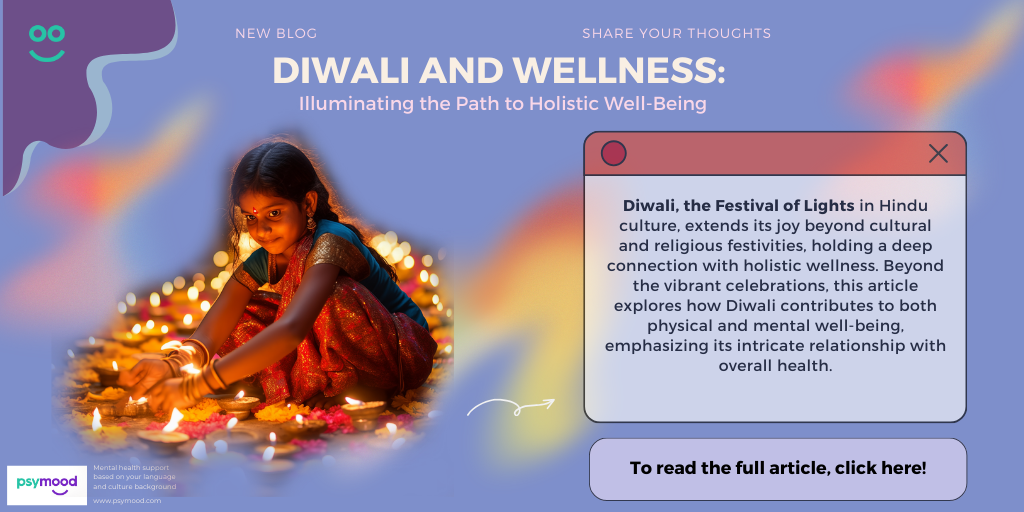Diwali and Wellness: Illuminating the Path to Holistic Well-Being
Diwali, also known as the Festival of Lights, is a significant and joyous celebration in Hindu culture that extends its radiance beyond the realms of cultural and religious festivities. Beyond the dazzling fireworks and colourful decorations, Diwali holds a profound connection with wellness—both physical and mental. This article explores the intricate relationship between Diwali and wellness, shedding light on how the festival contributes to the holistic well-being of individuals.
Symbolism of Light and Positive Energy:
Diwali is synonymous with the triumph of light over darkness. The symbolic lighting of diyas (oil lamps) signifies the dispelling of ignorance and the awakening of knowledge. This metaphorical journey from darkness to light mirrors the pursuit of wellness. Lighting lamps can be seen as a representation of igniting the light within ourselves, dispelling negativity, and embracing positive energy.
Cleansing Rituals and Physical Well-Being:
Diwali is often preceded by thorough cleaning and organizing of homes, a practice known as « Diwali cleaning. » This tradition is not just about making one’s surroundings aesthetically pleasing but also has implications for physical well-being. Cleaning involves physical activity, contributing to a healthier lifestyle by promoting movement and reducing clutter, which can positively impact mental health.
Healthy Eating Practices:
Diwali is synonymous with delicious sweets and savory treats. While indulgence is a part of the celebration, there is also a growing awareness of the importance of mindful eating. Many people now opt for healthier alternatives to traditional sweets, incorporating nuts, dried fruits, and other nutritious ingredients. The festival encourages a balance between enjoying festive delicacies and making mindful choices for one’s health.
Connection and Social Well-Being:
Diwali is a time for families and communities to come together. The act of sharing meals, exchanging gifts, and participating in cultural and religious ceremonies fosters a sense of connection and belonging. Social well-being is a crucial aspect of overall wellness, and Diwali provides an opportunity for strengthening relationships and building a supportive community.
Mindfulness and Spiritual Well-Being:
Diwali is not only a time for external celebrations but also for internal reflection. Practices such as meditation and prayer are integral to the festival. Taking a moment for introspection can promote mental well-being by reducing stress and promoting a sense of inner peace. The spiritual aspect of Diwali contributes to a holistic approach to wellness, addressing both the body and the mind.
Conclusion:
Diwali, beyond its cultural and religious significance, serves as a reminder of the interconnectedness of various aspects of well-being. The festival’s emphasis on light, cleanliness, healthy eating, social connection, and mindfulness collectively contributes to a holistic approach to wellness. As we celebrate Diwali, let us not only revel in the external festivities but also use the occasion to illuminate our path to a healthier and more fulfilling life. May the lights of Diwali shine brightly not only in our homes but also in our hearts and minds, guiding us towards well-being and balance.
For More Interesting Posts
More resources: Embracing Holistic Wellness: A Path to Mental Health, Cultivating Mental Clarity: Meditation Techniques for Improved Focus and Memory at Work, Balanced Living: Measuring All Aspects of Health


.png)
.png)
.png)
Recent Comments